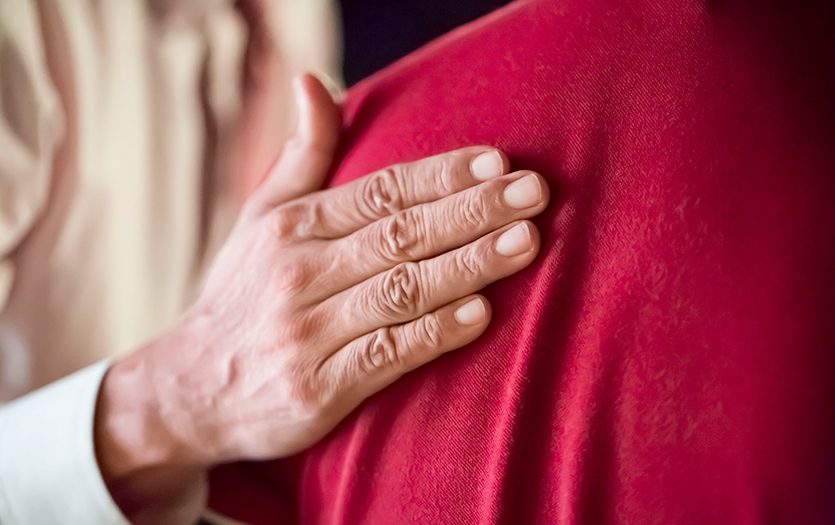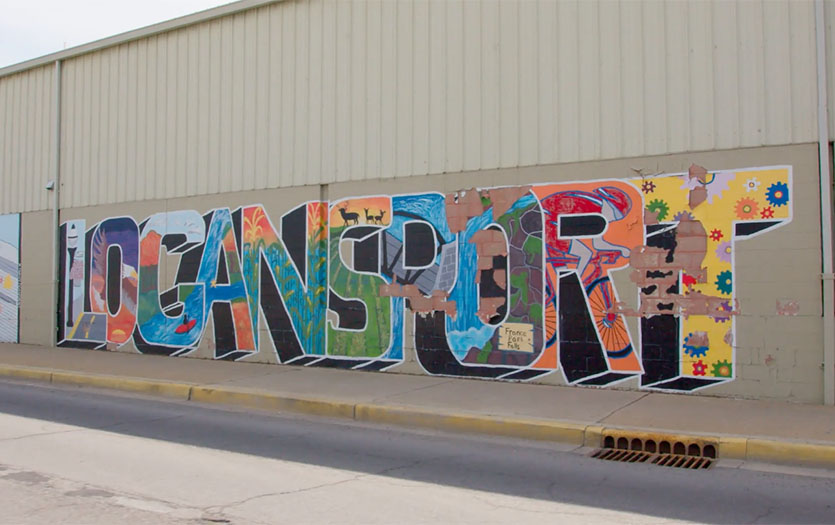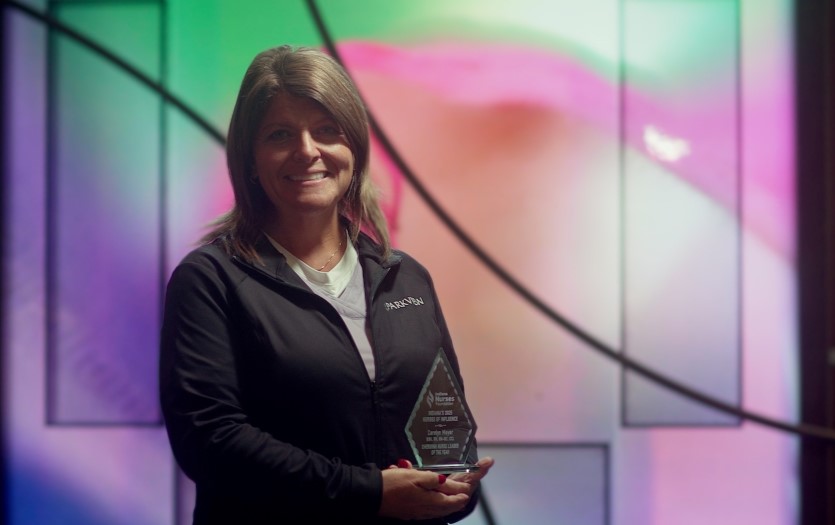
Enjoy this post by Jon Swanson, PhD, staff chaplain, Parkview Health.
The rock
I know that I’m a hospital chaplain. But during my shifts, I am a rock bearer. Not a collector, exactly. A bearer. When I walk toward our building, I pick up a rock from one of the landscaping beds. As I stick it in my pocket, I ask God for wisdom in the conversations I will have. As I walk through the next few hours, the rock in my pocket or on my desk will remind me of this request.
I work hard to not choose a rock for its shininess or color or any other distinctiveness. I simply pick up a rock. As hospital coworkers, we don’t get to choose shiny days. We receive and care for whatever emergencies and diagnoses come through the doors. People arrive because of accidents or aggravated family members, poor choices across a lifetime, or genetic patterns no one can predict. Or sometimes, literally, with challenges from only God knows where. And families arrive to help or understand, to celebrate births or to anticipate deaths.
Just as I accept whatever rock my hand touches, picking it up reminds me to accept responsibility on this day for whatever it holds, to provide the best possible help I can in some of the worst moments in people’s lives.
“Do you like your job?”
That’s what I am asked often when people learn that I’m a hospital chaplain. I usually laugh when I’m asked.
It’s not a very professional thing to do, but I’m unsure how to answer. Do I like standing next to a wife when her husband dies? Do I like calling a parent to tell them that a child is in the emergency room? Do they understand that every time a person dies in our hospital, a chaplain shows up to offer comfort and take care of paperwork? Do they know that every time the Emergency Department activates the stroke team or the cardiac arrest team or the trauma team or the medical activate team, a chaplain is part of that team?
With all that pain, I’m not sure that I like my job as a chaplain. But I am grateful to be a chaplain. I am grateful that the combination of experience and personality and calling that I have, connects with the deep needs of the hearts of people who come into our building every day. Because people walk, or are wheeled, into our building with deep needs. And chaplains are available.
Chaplains who know what it’s like to hear difficult diagnoses, who know what it’s like to lose children or parents or jobs, who know what it is like to be human. And who know what it’s like to wrestle with difficult questions about pain and hope and despair and God. And who keep coming back to work to help others wrestle with those same questions.
A hard job
He was a little taller than me.
His daughter was a little younger than mine.
“You have a really hard job,” he said.
“Not as hard as yours,” I said.
During the last hour, I had been in and out of his daughter’s room at the hospital. The two of us had talked a little, prayed a little. I was not in the room when her breathing stopped, but I was near. When her heart finally stopped, I stood by him a little, and then let the family be alone.
When I went back in the room, just before he left, I said, “Do you hug?”
He nodded, and I hugged him.
I walked out of the room and on to the next family. He walked into the rest of his life without his daughter. His job is infinitely harder.
At the end of the shift
I drop the rock back into a landscaping bed. Someone else will be carrying the responsibility for the souls coming into the building. These other chaplains are people I would trust with my heart, my family. They will pick up where I left off. As they carry on conversations, as they follow up with family members who have just arrived, they will do what I’ve been doing.
But for all my confidence in them, as I drop my rock, I pray for them. Because we cannot, we do not, do this sacred work alone.
Want more?
You can read about the Parkview chaplains here.



